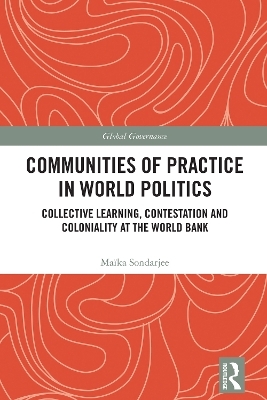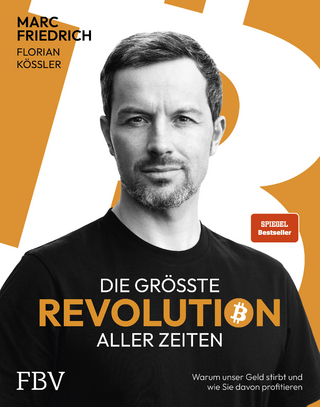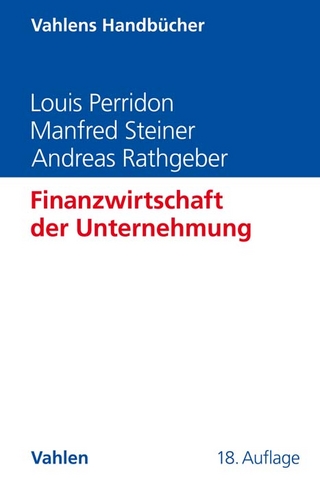
Communities of Practice in World Politics
Routledge (Verlag)
978-1-032-78922-4 (ISBN)
- Lieferbar (Termin unbekannt)
- Versandkostenfrei innerhalb Deutschlands
- Auch auf Rechnung
- Verfügbarkeit in der Filiale vor Ort prüfen
- Artikel merken
By defining international communities of practice (CoPs) as domains of knowledge, this book investigates the adoption of new practices via collective learning, i.e., the redefinition of what is acceptable and feasible. Explaining how inclusive practices at the World Bank became institutionalized, it shows that while changes in presidents can influence practices of international organizations, shifts in collective thinking are even more important to understand world ordering.
Since the 1980s, despite stability in their overall political rationality, World Bank employees arranged in CoPs collectively learned that program ownership and consultation in policymaking were more effective than top-down practices. Collective learning happens at the boundaries between CoPs when practitioners interact with others inside or outside the formal walls of an organization, through processes of boundary encounters, boundary brokering and the use of epistemic boundary objects. However, while learning that more democratic practices rendered their projects and policies more effective, Bank employees did not fully challenge colonial epistemic hierarchies in North-South relations. This CoP framework draws from, combines, and extends various strands of cutting-edge IR scholarship (i.e., practice-oriented and constructivist IR), management theory (communities of practice), organizational studies (narratives and day-to-day procedures), as well as development and critical studies (feminist and decoloniality approaches).
This book will be of interest to scholars and students interested in IR theory, international organizations, development practices, and social theory, but also development workers and anyone interested in global governance.
Maïka Sondarjee is an Associate Professor at the School of International Development and Global Studies at the University of Ottawa. Her research addresses communities of practice, the coloniality of power in global governance, the marginalization of feminist and Global South research in IR, as well as inclusive development at the World Bank. She has published in outlets such as International Studies Quarterly, Third World Quarterly, Millenium, Global Society, International Journal, International Studies Perspectives and Global Studies Quarterly.
1. Introduction 2. Relations, Processes, and Narratives in Communities of Practice 3. Collective Learning at the Boundaries of Communities of Practice 4. Inclusive Procedural Practices within CoPs at the Bank 5. Boundaries as Sites for Collective Learning 6. Boundary Brokers are not Alone, not even James Wolfensohn 7. Contestation in and of Practices 8. “Better Practices” and Coloniality of Epistemic Power 9. Conclusion: Implications for Multilateral Development Policymaking
| Erscheinungsdatum | 22.11.2024 |
|---|---|
| Reihe/Serie | Global Governance |
| Zusatzinfo | 2 Line drawings, black and white; 2 Illustrations, black and white |
| Verlagsort | London |
| Sprache | englisch |
| Maße | 156 x 234 mm |
| Themenwelt | Sozialwissenschaften ► Politik / Verwaltung ► Europäische / Internationale Politik |
| Wirtschaft ► Betriebswirtschaft / Management ► Finanzierung | |
| Wirtschaft ► Betriebswirtschaft / Management ► Planung / Organisation | |
| Betriebswirtschaft / Management ► Spezielle Betriebswirtschaftslehre ► Bankbetriebslehre | |
| Wirtschaft ► Volkswirtschaftslehre | |
| ISBN-10 | 1-032-78922-0 / 1032789220 |
| ISBN-13 | 978-1-032-78922-4 / 9781032789224 |
| Zustand | Neuware |
| Informationen gemäß Produktsicherheitsverordnung (GPSR) | |
| Haben Sie eine Frage zum Produkt? |
aus dem Bereich


